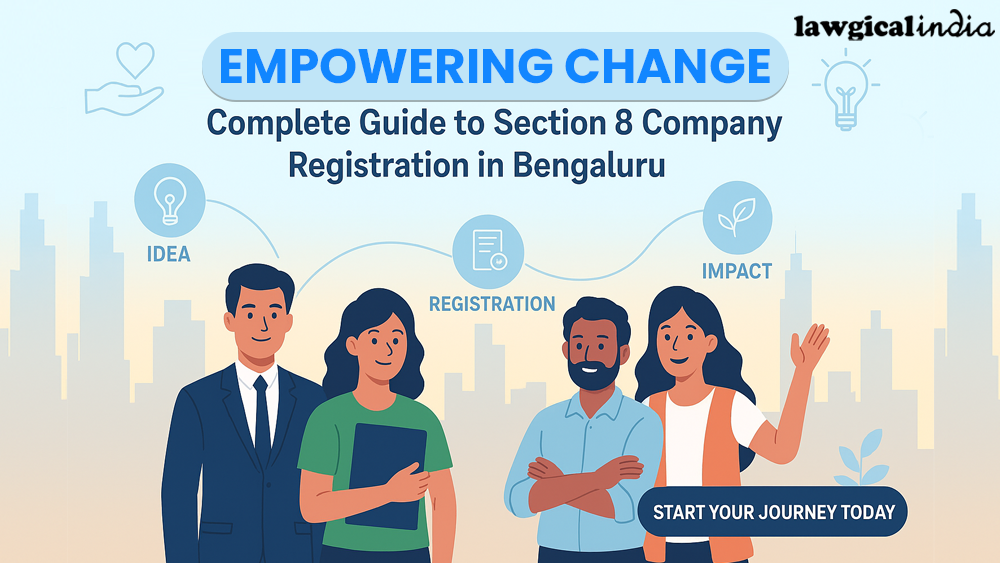Businesses are rapidly growing in India, and shareholders are switching their businesses to Limited Liability Partnerships from more conventional business structures like sole proprietorships, partnerships, or corporations (LLP). This kind of cooperation enables business owners to reduce their exposure to the company's debts and other obligations. But not every company may formally transform into an LLP. Which entities cannot be transformed into an LLP will be covered in this article.
The limited liability partnership is a corporate entity in which two or more partners share management of the company and are jointly responsible and liable for all debts and other obligations. Limited liability, managerial flexibility, tax advantages, and asset protection are just a few advantages that come with this kind of corporate business entity.
Governance and Benefits:
Limited Liability:
The limiting of personal liability for business debts and obligations is one of the most important advantages of an LLP. The LLP's debts and obligations are not the responsibility of the company's owners. This indicates that the owner's assets are not in jeopardy if the LLP is sued.
Tax Benefits:
An LLP provides its members with a number of tax advantages. For instance, the limited liability partnership registration is not subject to double taxation, and the profits and losses business's are divided between the partners for inclusion in their personal tax returns. Because of this, the partners can benefit from tax breaks and credits that other company organisations are not eligible for.
Flexible Management:
An LLP is a form of flexible business entity that gives the partners the freedom to choose how they will run the company. The members can decide the management style, including who will make decisions and how earnings will be allocated, as well as the rights and obligations of each partner.
Asset protection for businesses:
The members of a limited liability partnership are not individually accountable for the debts and obligations of the company; the assets of the company are protected. In order to pay off any debts or liabilities of the firm, creditors cannot seize the assets of the members.
Simple Formation:
An LLP can be created and kept up quite easily. The members are exempt from complying with some statutory requirements, like filing annual reports and holding annual meetings, that apply to other commercial entities. As a result, creating and maintaining a limited liability partnership takes less time and money.
The company must be authorised in India:
The business entity must be registered in India in order to be qualified for conversion to an LLP. This implies that no foreign company, either a foreign corporation or an LLC, may be transformed into an LLP.
The company must abide by all applicable laws and rules:
To qualify for conversion to an LLP, the company must adhere to all relevant laws and regulations. This covers any tax, labour, or environmental protection rules or regulations.
The conversion must be approved by all members:
The conversion of the company to an LLP requires the consent of all of its members. This covers each and every shareholder, partner, or employee of the company, as appropriate.
There must be a minimum of two designated partners in the company:
The company needs to have a minimum of two chosen partners in order to be qualified for conversion to an LLP. The selected partners must be people, with at least one of them being an Indian citizen.
A minimum of three people must be involved in the business:
The company needs to have a minimum of three members in order to be qualified for conversion to an LLP. Individuals or business entity like a company or LLC are both acceptable as members.
A minimum of two specified members and partners must be present in the company:
The company needs to have a minimum of two designated partners and two designated members in order to be qualified for conversion to an LLP. The selected partners must be people, with at least one of them being an Indian citizen. Business entity, such as a company or LLCs, must be designated members.
The LLP cannot be involved in any illegal activities:
Any legally forbidden actions cannot be carried out by a limited liability partnership registration. This covers ventures like banking, insurance, and the offering of particular securities.
The LLP must have a minimum capital contribution: An LLP must have a minimum capital contribution of at least ₹ 1 lakh.
The LLP must have a registered office: An LLP must have a registered office in India.
Companies that cannot be Converted into an LLP
Non-profit Organisations:
Conversion to an LLP is not permitted for non-profit organisations.
Public Sector Corporations:
Conversion to an LLP is not permitted for public sector companies, such as state-owned enterprises and government-owned business entity.
Foreign Corporations:
Conversion to an LLP is not permitted for foreign corporations and LLCs.
Sole Proprietorship:
An individual owns and runs a sole proprietorship, which cannot be changed into an LLP.
Charitable Trusts:
Conversion to an LLP is not permitted for charitable trusts.
Valediction:
A corporate entity can become an LLP and gain a number of advantages, such as restricted liability, flexible administration, tax advantages, and asset protection. Not all entities, though, can be converted to an LLP. Which legal entities cannot be transformed into an LLP has been covered in this article. You may quickly and safely change your business entity to an LLP with Lawgical India by following a few easy steps.











